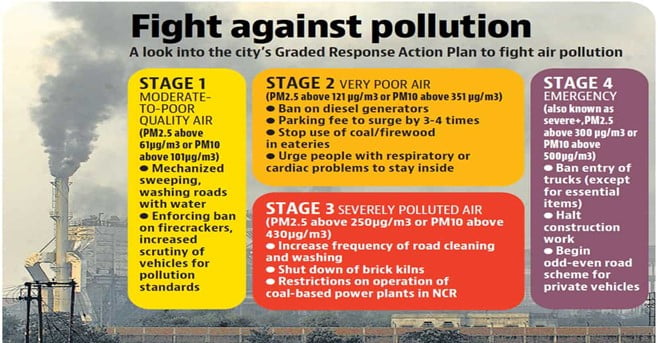Environment & Ecology
In News: The Delhi government will spray a bio-decomposer free of cost over 5,000 acres of paddy fields in the city this year, Environment Minister Gopal Rai said on Tuesday.
About Pusa Decomposer:
- It is a bio-enzyme consisting of seven fungi that digest cellulose, lignin, and pectin in paddy straw.
- It is developed by The Indian Council of Agricultural Research (ICAR)
- It decomposes the stubble, turning it into manure, thus increases soil fertility, prevents stubble burning and reduces air pollution.
Causes of air pollution in Delhi in winters:
Every winter air pollution spikes in the national capital and adjoining areas due to multiple reasons
- Slow wind speed
- Bursting of firecrackers
- Pollution from stubble burning
- Household emissions including domestic biomass burning
Actions taken:
- A list of emergency measures to control air pollution in Delhi-NCR, such as closing schools and stopping construction work, are undertaken each year during the winter months.
- Graded Response Action Plan, prepared by the Commission for Air Quality Management, emergency measures will now be implemented based on predictions on air quality, three days in advance.
Graded Response Action Plan

Source: The Hindu
Previous Year Question
Q.1) In the context of solving pollution problems, what is/are the advantage/advantages of bioremediation technique? (2017)
- It is a technique for cleaning up pollution by enhancing the same biodegradation process that occurs in nature.
- Any contaminant with heavy metals such as cadmium and lead can be readily and completely treated by bioremediation using microorganisms.
- Genetic engineering can be used to create microorganisms specifically designed for bioremediation.
Select the correct answer using the code given below:
- 1 only
- 2 and 3 only
- 1 and 3 only
- 1, 2 and 3











